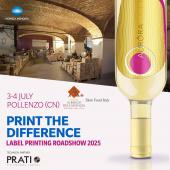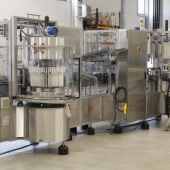Food contact: regulatory trends
A look at regulatory compliance in light of new requirements introduced at the “glocal” level, on the possibility of marketing these materials in certain regions. Focus on the controversial relationship between legislation and industry. Sidebar: reflections on the International Conference on Food Contact Compliance (Baveno, Italy, September 2017)
by Marinella Vitulli
The food contact materials sector is currently undergoing rapid changes, accompanied by intensified efforts on the part of national and European regulators to keep up with this process.
Emerging countries are also introducing legislation at the local level, taking their cue, in part, from major international regulations, but with adjustments of their own, resulting in new requirements with which businesses must comply in order to distribute their goods without running into holdups and fines at customs.
All this adds up to a very complex regulatory landscape, requiring careful study and constant updates, often in the form of discussions and conferences featuring panels of technical experts and industry operators. One of the most important events of this kind was held in late September in Baveno, Italy. As usual, the International Conference on Food Contact Compliance was masterfully orchestrated by Istituto Italiano Imballaggio, with major legal and technical/scientific food contact materials experts from numerous different countries taking part with informative presentations.
Legislative harmonization stalls
More so than in previous editions, during the three days of discussion it clearly emerged how regulatory compliance requirements and the increasingly fraught relationship between legislators and industry, particularly in Europe, have generated differing (at times opposing) views on complex chemical and toxicological issues. In many countries, this situation has led to stalled legislation on a variety of pressing issues.
Following an evaluation of Germany’s vast legislative work on inks, the European Commission has announced its intention to adopt a common European regulatory framework to govern printed food contact materials.
Since this harmonized legislation is expected to be adopted in 2018, drafting the laws is a top priority on the work program of the Directorate General for Health and Food Safety (DG SANTE).
It is important to highlight that the decision will affect printed food contact materials and not printing inks. Furthermore, it is highly likely that the decision will follow a new approach based on the designation of specific entities responsible for adjudicating the compliance of printed materials.
These entities will be tasked with identifying substances that migrate from the materials, running toxicological tests to assess the risk they pose and eventually proposing regulations to control those substances.
All substance profiles will be archived in a central database that can be used by producers and other industry actors. If the law is actually implemented in such a way, the EC will only provide the rules defining the actions necessary to assessing the danger of substances and exposure conditions, referring to the risk assessment, the functioning of the system and how resulting documents are managed, without providing specific regulations governing the substances.
At the moment, it is still unclear how the designated entity will be organized and if it will be subordinated to official regulatory authorities or else constitute an independent agency.
These uncertainties are evoking strong reactions from the industry, which is crying foul and pointing out the many efforts made on its part to establish risk assessment guidelines - with careful attention to the possibility of exposure to consumers - not only for printed materials, but for all food contact materials.
These efforts do not as yet appear to have been taken into full consideration by governments.
Clear rules: increasingly essentialAnother point of discussion that emerged during the three days in Baveno has to do with the delayed publication of the guidelines for testing plastic materials in accordance with Regulation (EU) No 10/2011. Even though the law went into effect in 2011, the document produced by the Joint Research Centre has still yet to be released, with periodic postponements now essentially standard practice.
The JRC has announced that the guidelines have been completed, including the notice and public comment period. The delay is probably related to the large number of rules included in the document, which are very specific and only understandable for technical experts, potentially complicating rather than simplifying practices throughout the supply chain.
In the meantime, the European Commission has scheduled the ninth amendment to Regulation (EU) no 10/2011, governing plastics, for 31 August, 2017.
Other developments relating to food contact materials in a variety of countries have to do with Bisphenol A, which has been rescheduled by the American FDA as a dangerous substance, as well as by Californian law following the passing of Proposition 65.
In other important news, altering the international regulatory landscape, numerous safety standards have recently gone into effect in China, with new rules for testing and new positive lists. Many businesses are worried by the fact that the positive lists do not include all substances legally usable by industry in other countries where legislation on additives are non-compulsory or not harmonized.
This is probably the biggest problem afflicting the food contact materials supply chain: safety requirements for distributors differ from region to region, are often unclear and are constantly changing, to the detriment of the free circulation of goods, which is increasingly at risk.
|
|
|---|
| A brief overview of regulations currently in force in different regions of the world reveals a highly heterogeneous and troublesome situation with which producer companies must contend.... |
 Marinella Vitulli ([email protected])
Marinella Vitulli ([email protected])
Technical and General Manager Food Contact Center Srl
Food Contact Expert AIBO 035; N° 1814 Sezione A dei Chimici - Ordine Toscana


 Risk assessment of printed articles marketed worldwide
Risk assessment of printed articles marketed worldwide














